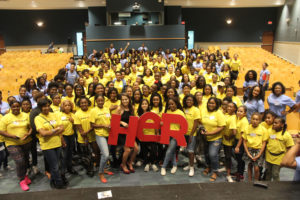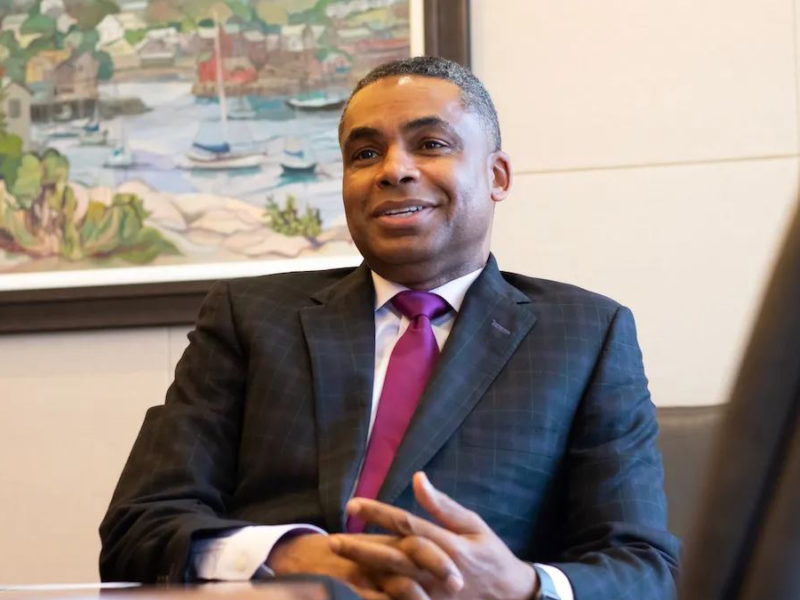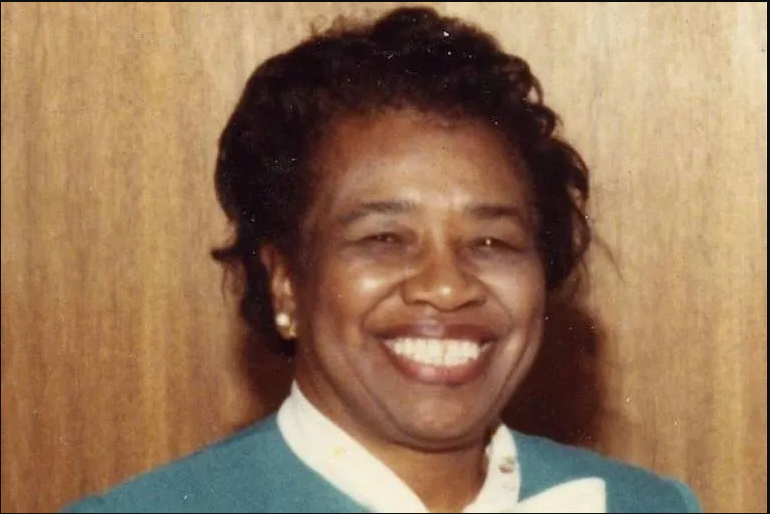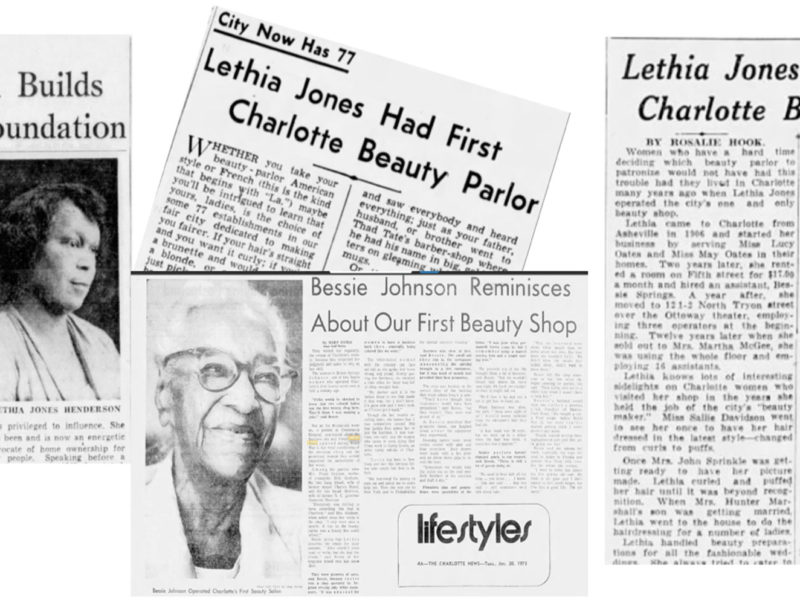
Building on a Legacy of Black Giving
Lethia Henderson was a hairdresser by training who died in 1955. Elizabeth Randolph was a Charlotte-Mecklenburg Schools educator who passed away in 2004. Yet, the legacies both women left continue to have an impact, still today.
That’s because both established endowments before they passed. And today, those endowments help Foundation For Black Philanthropy, an affiliate of Foundation For The Carolinas, make a difference in the Black community through its grantmaking to local nonprofits.
“It’s vital we remember the legacies of these two amazing women with every grant we issue,” said Qiana Austin, vice president and scholarships programs officer for FFTC, who also oversees Foundation For Black Philanthropy. “These women knew they could continue to have an impact on the Black community and Charlotte at-large through establishing an endowment, and their voices continue to be heard because of that planning.”
Of the two women, Lethia Henderson led a more private life. We know she was a hairdresser and, according to the Charlotte-Mecklenburg Historic Landmarks Commission, her family bought, sold and rented properties along Beatties Ford Road as early as 1916.
She set aside money in her will to create an endowment fund, now known as the Lethia Henderson Fund for a Healthy Black Community, to support health care and other needs in the Black community.
Over a career that spanned 38 years, Elizabeth “Libby” Randolph was a Charlotte-Mecklenburg Schools teacher, principal and administrator. She’s credited with helping CMS navigate school desegregation in the 1960s. Given her impact, a CMS administrative building is named in her honor.
Before she died in 2004, she established an eponymous endowment fund (now called the Elizabeth S. Randolph Fund for Education and Prosperity) to support nonprofits working in the Black community.
These endowments have helped Foundation For Black Philanthropy (formerly the African American Community Foundation) award more than $500,000 to local nonprofits since 1993.
Foundation For Black Philanthropy
At a time when the work of equity and inclusion is a larger part of the national narrative, Foundation For Black Philanthropy is seizing the moment.
After conversations within the community, the African American Community Foundation recently changed its name to Foundation For Black Philanthropy. This new, bolder name allows for an expanded community reach, reflecting the diversity of local philanthropy and providing more pathways for engagement.
In addition to being a grantmaking program, FFBP is now also an affiliate of Foundation For The Carolinas. This means that FFTC’s fundholders can align their personal grantmaking with Foundation For Black Philanthropy, highlighting the collective impact of Black philanthropy in the region.
Foundation For Black Philanthropy recently kicked off a fundraising campaign to increase the size of its endowment, which currently stands at $600,000. The goal is to raise $1.5 million for the endowment, which will allow FFBP to expand grants to grassroots nonprofits doing work where it is needed most. A $100,000 gift from Foundation For The Carolinas helped kickstart the campaign.
“We recognize the important role Foundation For Black Philanthropy plays in funding emerging organizations that address racial disparities, as well as uplifting and facilitating Black giving,” said Michael Marsicano, president and CEO of Foundation For The Carolinas. “While the Foundation’s discretionary dollars are quite limited, our board and leadership believe the $100,000 grant to FFBP is a critical investment to capitalize on their momentum and encourage other institutions and individuals to give.”
This work comes on the heels of the national reckoning following murder of George Floyd by a Minneapolis police officer in 2020, as well as other high-profile acts of violence against Black people.
“George Floyd helped us look at how can we enhance Foundation For Black Philanthropy to be a catalyst for change for what is happening in America,” said Board Chair Terik Tidwell.
The question, Tidwell said, is “How do we endow the future?” The answer, he said, is to combine a capitalistic mindset with a philanthropic heart.
Investing in Grassroots Nonprofits
The former African American Community Foundation was established in 1993 as a special initiative of Foundation For The Carolinas. Since its founding, its grantmaking has supported efforts that promote economic self-reliance, equal opportunity, leadership skills and cultural awareness in the region’s Black community.
A deeper storyline guides this work – the 2014 Chetty Study that ranked Charlotte last in a survey of 50 cities in upward mobility. In other words, rising out of poverty here is harder than it is elsewhere.
Grants from Foundation For Black Philanthropy typically range from $3,000 to $10,000 and must be used for program initiatives rather than operating costs such as salaries. The current focus includes healthcare disparities based on race, strengthening the Black family, workforce development and educational opportunities.
Board Chair Tidwell, who is the Executive Director of the Smith Tech-Innovation Center at Johnson C. Smith University, said the broader goal is to eventually be able to help nonprofits sustain an annual budget of at least $500,000 and build a foundation that can see them flourish for 20 years or more.
To that end, rather than one-year grants, FFTC’s Austin said FFBP is looking to expand its impact by awarding multi-year grants to organizations.
A wide range of nonprofits have been strengthened by FFBP grants, among them:
- Freedom School Partners, which holds summer camps to help at-risk students avoid summer learning loss.
- Profound Gentlemen, which works to inspire men of color to become teachers.
- EmpowHERment, which develops leadership skills in young girls by connecting them with a female adult mentor.

More Than Financial Support
Youth Development Initiatives was awarded a $5,000 grant in 2015. The nonprofit prepares disadvantaged high school students to succeed in the work world through after-school classes and mentoring.
Those who successfully complete the required training move on to a summer job that pays a stipend and offers real-life experience. A grant from Foundation For Black Philanthropy helped pay for those summer work experiences.
Youth Development Initiatives is at work in Mecklenburg, Cabarrus, Gaston, Rowan and Stanly counties. Typically in Mecklenburg, the nonprofit works with up to 50 students each academic semester, offering each student individualized career advice. Youth Development Initiatives studies show a 100-percent graduation rate for students who stick with the program for two years.
Executive Director Darryl Bego said Foundation For Black Philanthropy offers more than financial support. It can shine a light on unsung nonprofits, telling those organizations’ stories to prospective donors, volunteers, the corporate community and others. It can also support nonprofits through workshops, online educational programs and other resources that may be out of reach for small nonprofits.
And it can bring together like-minded nonprofits around the causes they embrace, simply by telling the stories. One example: Recently, through Foundation For Black Philanthropy, Bego learned of another nonprofit – UrbanPromise – that works with at-risk students. His to-do list got a little longer: Reach out to UrbanPromise.
This is all part of the same mission for Foundation For Black Philanthropy: To become, as Tidwell said, the north star for Black philanthropy.
And it all started thanks to two women who had the foresight to think ahead, beyond the impact they had while living.
“I am sure Ms. Randolph and Ms. Henderson would be proud of the work we are doing if they were here today,” said Qiana Austin about the future of Foundation For Black Philanthropy. “It’s important we continue to honor them through our work.”




